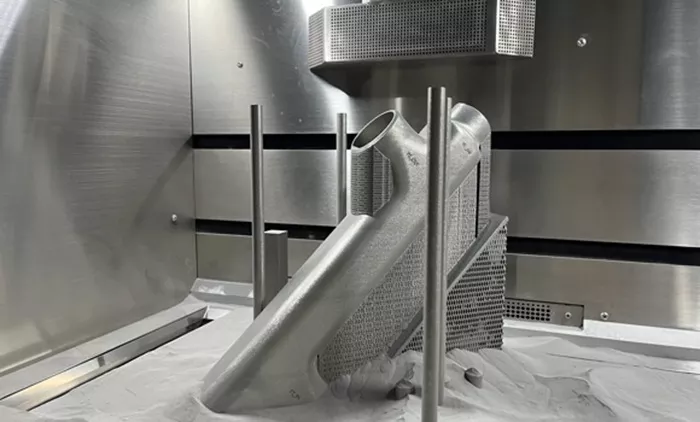TEMISTh, a French company based in Marignane, has teamed up with Eplus3D, a Chinese firm located in Hangzhou, to advance the use of Additive Manufacturing (AM) in thermal exchange solutions. By leveraging Eplus3D’s metal 3D printing technology, TEMISTh has successfully created complex heat exchangers made of nickel alloy, capable of withstanding extreme conditions. These exchangers have achieved a density of 99.9%, making them highly effective for their intended use.
The collaboration is part of the Desolination project, a European initiative aimed at creating sustainable desalination methods to secure future water resources. The project focuses on integrating Concentrated Solar Power (CSP) with innovative thermal exchange technologies. One of the key challenges in this effort is optimizing heat transfer between supercritical CO2 and highly concentrated desalination solutions— a task that requires the precise geometries that only Additive Manufacturing can produce.
Using the Eplus3D EP-M300 metal AM machine, TEMISTh produced nickel-alloy heat exchangers (IN718) with a 50 μm layer thickness. The process took 130 hours of continuous printing. The machine, which features a 300 x 300 x 450 mm build volume and dual 500 W lasers, allowed TEMISTh to create heat exchangers that exceeded traditional manufacturing limits in both size and performance. Post-processing heat treatments resulted in a material density of over 99.9%. The modular design also allowed for the welding of large-scale heat exchangers (measuring 0.4 x 1.2 x 1.6 m).
TEMISTh applied advanced simulations, including Computational Fluid Dynamics (CFD) and Finite Element Analysis (FEA), to optimize the heat exchanger designs. This approach reduced material waste by up to 40% and halved production time compared to conventional manufacturing methods.
The heat exchangers underwent rigorous testing under conditions mimicking those in desalination plants: high temperatures, extreme pressure, and exposure to corrosive elements. These tests confirmed the structural integrity of the exchangers, and their performance met the required operational standards. The results not only validated the simulations but also established key parameters for mass production, confirming that AM can be used for large-scale thermal solutions.
Jean-Michel Hugo, CEO of TEMISTh, commented, “For over three years, we’ve worked with Eplus3D to integrate Additive Manufacturing into our production processes. Their teams in China and Germany have consistently supported our needs, ensuring smooth installations, expert guidance, and optimizations. Their technical team’s responsiveness has been crucial in minimizing production downtime, allowing us to refine our heat exchanger manufacturing and reduce delivery times.”
Martin Bizot, Account Manager at Eplus3D Tech GmbH, added, “By combining TEMISTh’s expertise in heat exchanger design with the precision and stability of our metal 3D printers, we’re unlocking new possibilities in thermal management. This collaboration supports the development of cost-effective, energy-efficient solutions for industries, playing a key role in the decarbonization of the energy sector.”

